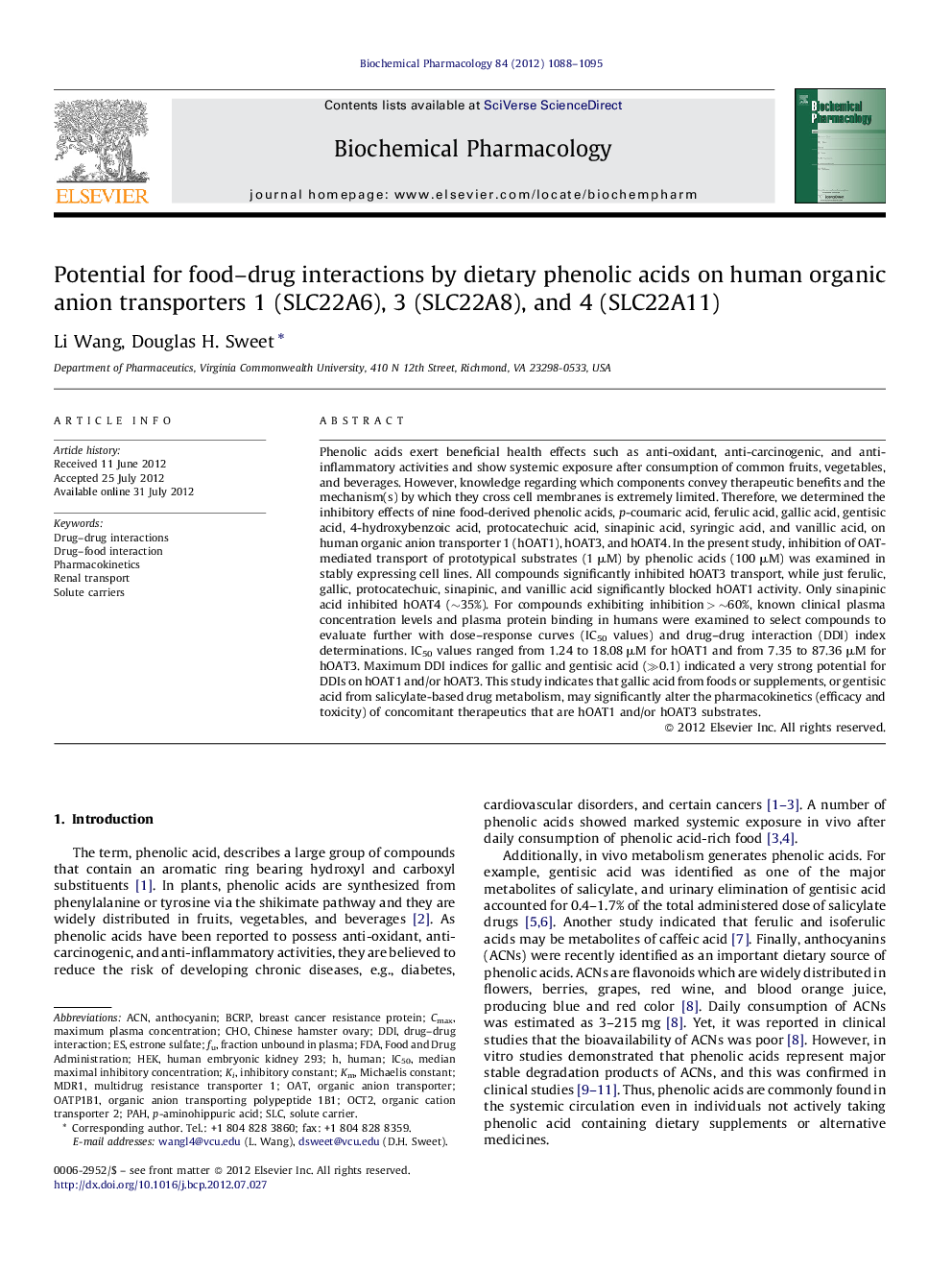| کد مقاله | کد نشریه | سال انتشار | مقاله انگلیسی | نسخه تمام متن |
|---|---|---|---|---|
| 5824036 | 1118395 | 2012 | 8 صفحه PDF | دانلود رایگان |

Phenolic acids exert beneficial health effects such as anti-oxidant, anti-carcinogenic, and anti-inflammatory activities and show systemic exposure after consumption of common fruits, vegetables, and beverages. However, knowledge regarding which components convey therapeutic benefits and the mechanism(s) by which they cross cell membranes is extremely limited. Therefore, we determined the inhibitory effects of nine food-derived phenolic acids, p-coumaric acid, ferulic acid, gallic acid, gentisic acid, 4-hydroxybenzoic acid, protocatechuic acid, sinapinic acid, syringic acid, and vanillic acid, on human organic anion transporter 1 (hOAT1), hOAT3, and hOAT4. In the present study, inhibition of OAT-mediated transport of prototypical substrates (1 μM) by phenolic acids (100 μM) was examined in stably expressing cell lines. All compounds significantly inhibited hOAT3 transport, while just ferulic, gallic, protocatechuic, sinapinic, and vanillic acid significantly blocked hOAT1 activity. Only sinapinic acid inhibited hOAT4 (â¼35%). For compounds exhibiting inhibition > â¼60%, known clinical plasma concentration levels and plasma protein binding in humans were examined to select compounds to evaluate further with dose-response curves (IC50 values) and drug-drug interaction (DDI) index determinations. IC50 values ranged from 1.24 to 18.08 μM for hOAT1 and from 7.35 to 87.36 μM for hOAT3. Maximum DDI indices for gallic and gentisic acid (â«0.1) indicated a very strong potential for DDIs on hOAT1 and/or hOAT3. This study indicates that gallic acid from foods or supplements, or gentisic acid from salicylate-based drug metabolism, may significantly alter the pharmacokinetics (efficacy and toxicity) of concomitant therapeutics that are hOAT1 and/or hOAT3 substrates.
Journal: Biochemical Pharmacology - Volume 84, Issue 8, 15 October 2012, Pages 1088-1095